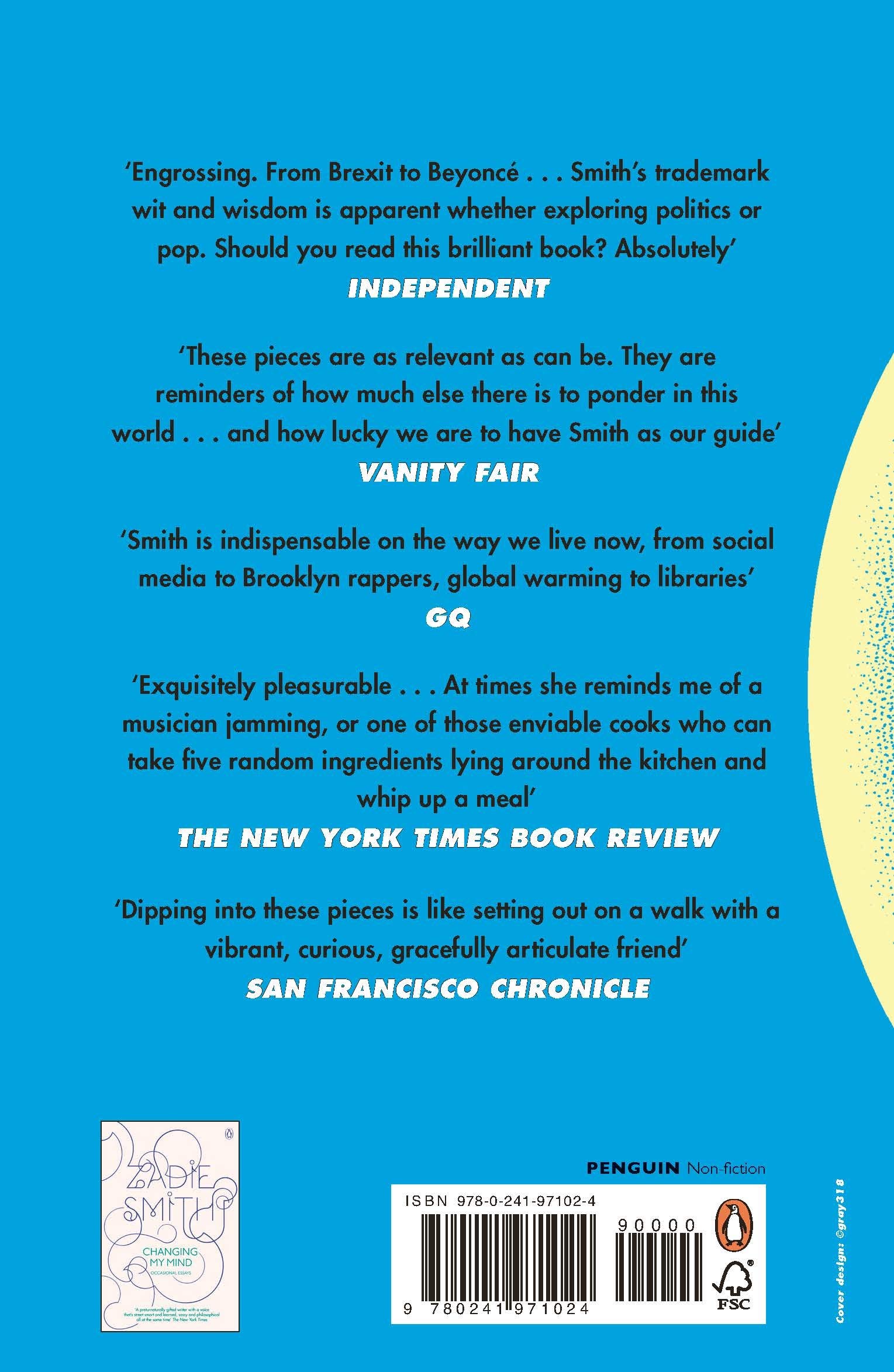

“Change,” she observes, “is the rule.” Yet nothing could have prepared the novelist for Britain’s vote to leave the European Union in June 2016-nor the resentment that, once hidden, since burst forth. Smith is ever alert to the encroachment of urban development and gentrification, in London as elsewhere. “Northwest London Blues” recounts a trip through Smith’s old Willesden neighborhood, where she sees the threat of extinction for a beloved bookshop and library. Despite their relatively lowly position in the British class system they suspected they were cool, and knew they had talent and brains.” Talent and brains are what we have come to expect from this writer, but it’s her humility that’s so moving: “I owe a lot, both personally and professionally, to Kureishi’s account of the strange relationship that can exist between first generation immigrants and their children.” For Smith, schooled on Austen, Milton, Shakespeare, and Keats, meeting Kureishi’s protagonist was a wake-up call to a new kind of narrator: “Karim was different, I knew him I recognised the way class worked in his family, the complex mix of working- and lower-middle-class realities …” Karim, like Smith and many of her generation, is part of a new breed, not the “tragic mulatto,” but “pushy, wild, charismatic, street-smart, impudent, often hilarious. She describes how the novel passed from one teen to another, like contraband, for its explicitly sexual passages.

Start with “The Buddha of Suburbia” for an affectionate tribute to Harif Kureishi’s 1991 novel as a rite of passage, especially for Smith and her peers, mixed-race kids growing up in northwest London. So while the title of her new essay collection suggests follow-your-bliss easy reading, its contents contain her signature thoughtful analyses of tough topics like Britain’s EU exit, US race relations, and Mark Zuckerberg.


Anyone familiar with the writings of Zadie Smith-as a novelist or cultural critic-knows she isn’t afraid to tackle explosive topics.


 0 kommentar(er)
0 kommentar(er)
